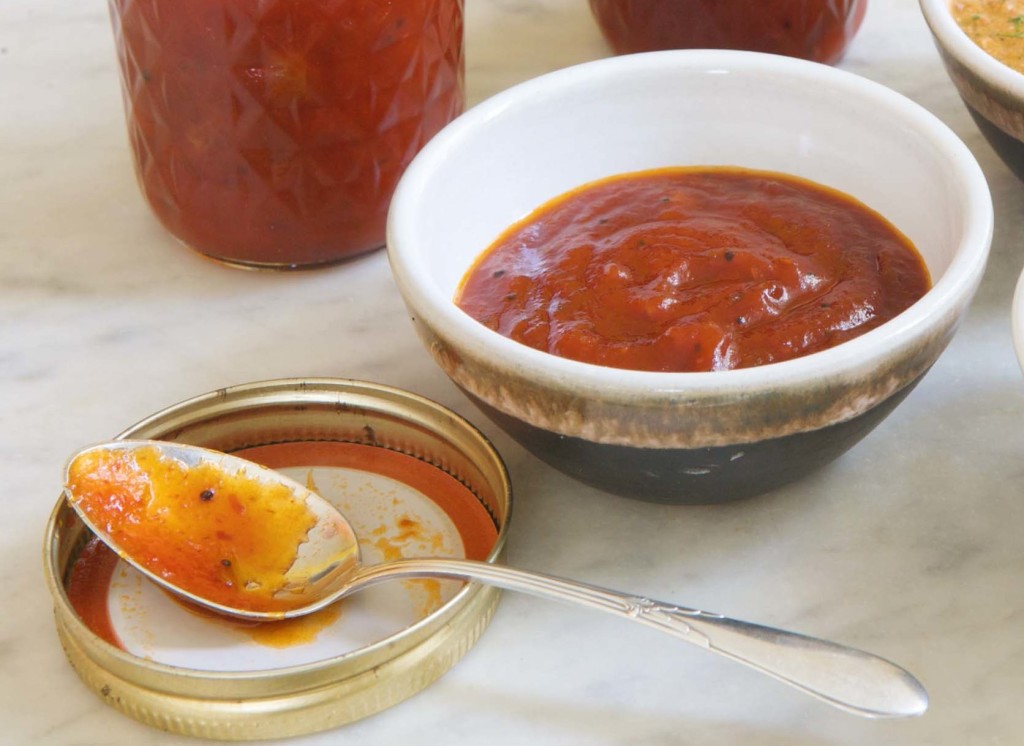At Bengali banquets, this chutney, along with deep-fried, puffed white-flour breads (loochis) and pappadoms, is served as the penultimate course, just before the dessert. It can, however, be served with a main meal.
Ingredients
- 2 tablespoons olive, canola, or peanut oil
- ½ teaspoon whole cumin seeds
- ½ teaspoon whole brown or yellow mustard seeds
- ¼ teaspoon whole fennel seeds
- 2 cups tomato puree, canned or homemade
- 1 ½ teaspoons very finely grated peeled fresh ginger
- ¾ cup apple cider vinegar
- 1 cup sugar
- ¾ teaspoon red pepper flakes
- 1 ¼ teaspoons salt
- 2 tablespoons golden raisins (optional)
- Nutritional Information
Nutritional analysis per serving (6 servings)
173 calories; 0 grams fat; 0 grams saturated fat; 0 grams monounsaturated fat; 0 grams polyunsaturated fat; 41 grams carbohydrates; 1 gram dietary fiber; 37 grams sugars; 1 gram protein; 530 milligrams sodium
Note: Nutrient information is not available for all ingredients. Amount is based on available data.
Makes a generous 1 1/2 cups.
Preparation
- Pour the oil into a heavy, medium-size stainless steel pan and set over medium-high heat. When hot, add the cumin and mustard seeds. As soon as the mustard seeds begin to pop, a matter of seconds, add the fennel seeds.
- A few seconds later, add the tomato puree, ginger, vinegar, sugar, pepper flakes and salt. Stir and bring to a simmer. Once bubbling, turn heat down to low and cook, uncovered, stirring now and then, for about 50 minutes.
- Add the raisins and cook another 10 minutes. The chutney should be thick and have a glazed appearance. Put the chutney into a jar, allow to cool, and then screw the lid on and refrigerate.
1 hour 15 minutes


Dining and Cooking